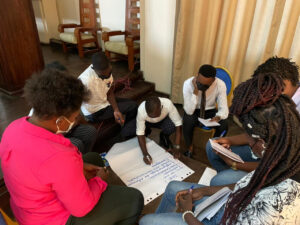Lesson Learned: Raising the Social and Political Profile of Youth in Mozambique


Building on previous projects creates important synergies and benefits, such as working with previous beneficiaries, relying on alumni networks, and learning from past experiences. In this case, the Implementing Partner relied on its participant network from previous UNDEF-funded programs to ensure an elastic project design that helped effectively adjust activities during pandemic-related lockdowns while enlarging the number of beneficiaries.
The project’s objective is to support in an inclusive way the monitoring of governmental efforts to implement UN treaty body recommendations, by bringing together civil society organizations and parliamentary actors to develop a monitoring mechanism; conducting a capacity development programme on international human rights law, monitoring, and advocacy in four regions; and mobilizing legislators to effectively exercise their roles and responsibilities in holding the government accountable for its commitments to implement UN treaty body recommendations.
Project outcomes should be captured on a continuous basis, rather than only at the end of the project. It is vital to capture the difference made by a project intervention at different stages of the project (immediately after the event and at further times). Otherwise, it is impossible to distinguish between the effects of different project interventions.